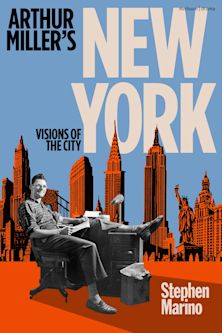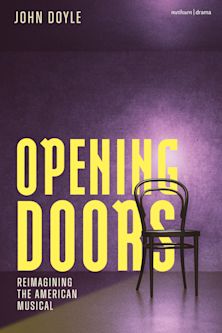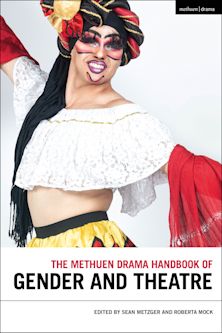- Home
- ACADEMIC
- Drama & Performance Studies
- Theatre History and Criticism
- Historical Dictionary of Vaudeville
This product is usually dispatched within 1 week
- Delivery and returns info
-
Free CA delivery on orders $40 or over
You must sign in to add this item to your wishlist. Please sign in or create an account
Description
Vaudeville, as it is commonly known today, began as a response to scandalous variety performances appealing mostly to adult, male patrons. When former minstrel performer and balladeer Tony Pastor opened the Fourteenth Street Theatre in New York in 1881, he was guided by a mission to provide family-friendly variety shows in hopes of drawing in that portion of the audience – women and children – otherwise inherently excluded from variety bills prior to 1881. There he perfected a framework for family-oriented amusements of the highest obtainable quality and style.
Historical Dictionary of Vaudeville contains a chronology, an introduction, an extensive bibliography, and the dictionary section has more than 1,000 cross-referenced entries on performing artists, managers and agents, theatre facilities, and the terminology central to the history of vaudeville. This book is an excellent resource for students, researchers, and anyone wanting to know more about vaudeville.
Table of Contents
Reader's Note
Chronology
Introduction
THE DICTIONARY
Bibliography
About the Author
Product details
| Published | Jun 15 2023 |
|---|---|
| Format | Hardback |
| Edition | 1st |
| Extent | 690 |
| ISBN | 9781538113349 |
| Imprint | Rowman & Littlefield |
| Dimensions | 237 x 158 mm |
| Series | Historical Dictionaries of Literature and the Arts |
| Publisher | Bloomsbury Publishing |
About the contributors
Reviews
-
[Hopefully] this book can be a launching pad for new scholarship on the period that continues to fill in the gaps of variety entertainment. There is much to be learned from how variety entertainment spoke to so many disparate audiences and shaped how Americans understood themselves and others.
Theatre Topics
-
This is a thorough and thoroughly engrossing work about the long-gone world of American vaudeville. The author has taken the raw data of hundreds of names and terms and turned it all into something readable and highly interesting.
Thomas S. Hischak, author of The Oxford Companion to the American Musical
-
Part of the "Historical Dictionaries of Literature and the Arts" series, Fisher's Historical Dictionary of Vaudeville has a clearly defined scope: it records details of variety show performers, musicians, impresarios, animal trainers, tools, and techniques on the American stage between 1881 and 1932 that are "in danger of being lost to posterity" (p. xi). A chronology describes the origin and demise of the genre; the introductory essay and entries such as “Ethnicity and Race on the American Stage” address the racism and xenophobia that was part of entertainments of that era as well as the way the industry built a mythology of showbiz as a ticket out of poverty. Entries describing agencies, managers, and professional organizations provide rich background about the business aspect of vaudeville circuits. Fisher looks at a deep, diverse roster of performers and performances, supplying original capsule biographies and cross-referencing entries about collaborators, managers, venues, and genres of the act. Particularly valuable is Fisher's documentation of theater argot and lore, such as the origin of the phrase “Get the Hook!," used when an “oil can” (an unpopular performer) is removed from the stage by a stagehand via hook. Highly recommended. Upper-division undergraduates through faculty and professionals; general readers.
Choice Reviews

ONLINE RESOURCES
Bloomsbury Collections
This book is available on Bloomsbury Collections where your library has access.



































